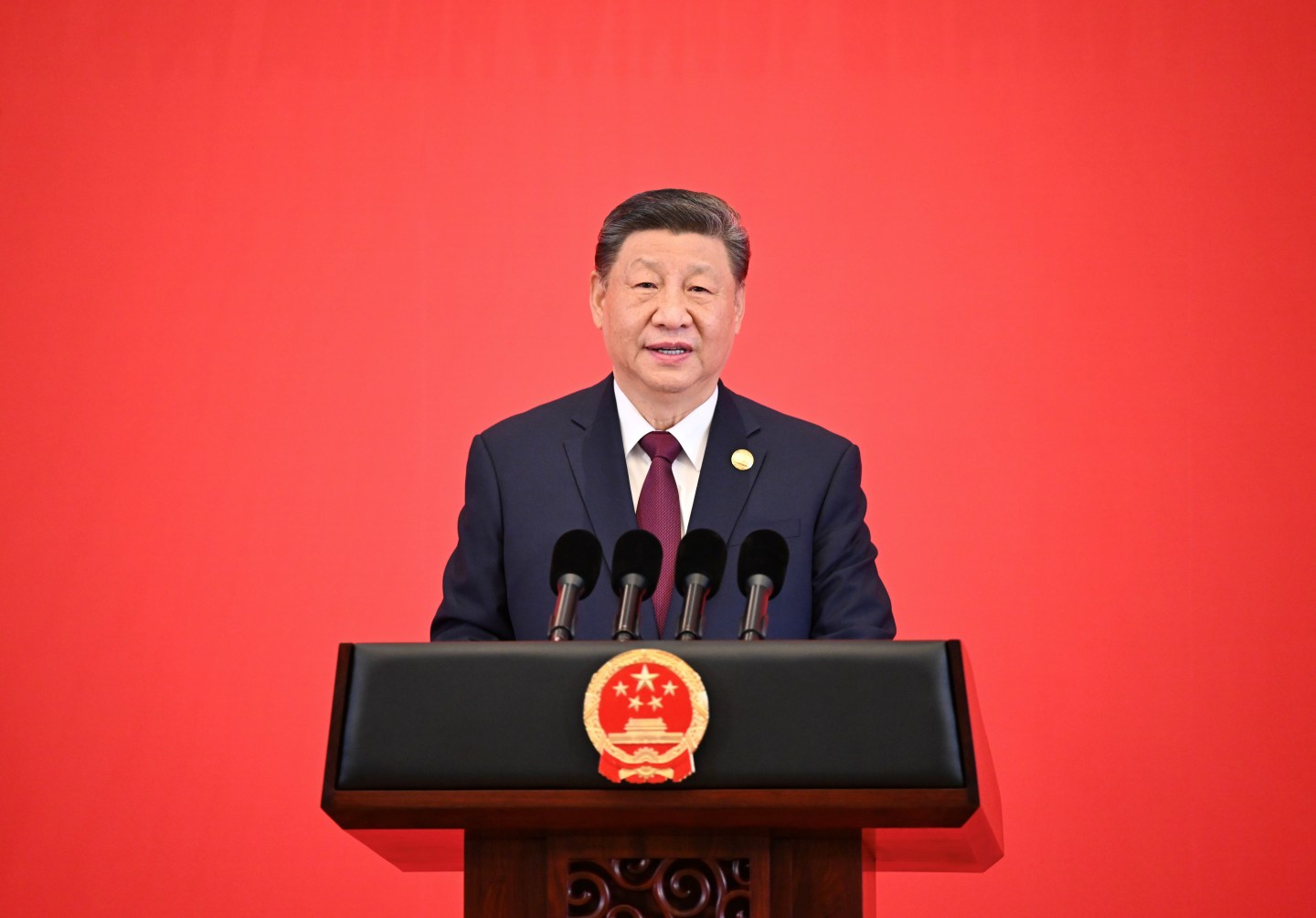Good morning. Nextdoor isn’t my favorite thing in the world—let’s just say I’ve learned a lot about my neighbors that I’d rather forget—but CEO Nirav Tolia recently had some interesting things to say about the social media company’s attempt at reinvention. (Its shares currently trade around $2.50.)
“We realized over time that neighbors don’t always have the broad range of information that you’re looking for,” he told TechCrunch, “and there are lots of entities in your neighborhood, whether it’s schools or local businesses or influencers or organizations that you rely on, and those could be local news publishers as well.”
A way out of the “Did anyone hear that sound?” madness? Sign me up. —Andrew Nusca
Want to send thoughts or suggestions to Data Sheet? Drop a line here.
Xi meets with Jack Ma, Ren Zhengfei, and others

Chinese President Xi Jinping met with several prominent Chinese tech entrepreneurs on Monday in a major show of support.
State media reported that Xi hosted Alibaba cofounder Jack Ma, Meituan CEO Wang Xing, Xiaomi CEO Lei Jun alongside Unitree founder and CEO Wang Xingxing, DeepSeek founder Liang Wenfeng, Huawei founder Ren Zhengfei, Tencent founder Pony Ma, BYD CEO Wang Chuanfu, and CATL CEO Robin Zeng.
Together, the executives represent chipmakers, electric carmakers, and AI developers that Xi hopes will help China reduce its reliance on U.S. alternatives.
In a speech, Xi urged the executives “to maintain their competitive spirit and have confidence in the country’s future,” as a Bloomberg report put it. China is the world’s second-largest economy but its momentum has slowed and its trade war with the U.S. has rattled supply chains.
Xi also promised to eliminate unreasonable fees or fines impeding entrepreneurs in the state-dominated economy. “It is necessary to resolutely remove all kinds of obstacles to the equal use of production factors and fair participation in market competition,” Xi told the entrepreneurs, according to a Xinhua report.
How far will Beijing actually go to support the private sector? It remains to be seen. But entrepreneurs like Jack Ma surely remember that it wasn’t so long ago that the Chinese government was willing to scuttle the country’s largest IPO in the name of alignment. —AN
X won’t let users link to encrypted messaging app Signal
Elon Musk seems to be having trouble with that free speech thing he likes to go on about.
X has started blocking links to the encrypted messaging app Signal. As first reported by Disruptionist, then confirmed by others including yours truly, the social network won’t let people post or send signal.me links, which are designed as an easy way for others to message the account holder in secret.
“We can’t complete this request because this link has been identified by X or our partners as being potentially harmful,” reads one automated message shown to someone trying to post one of the links. Those attempting to include the link in a DM or their bio are seeing messages warning of spam or malware.
Disruptionist theorizes that this might all have something to do with federal employees privately using Signal to tell journalists about the actions of Musk’s “DOGE” team in recent weeks. The team has been trying to shut down swathes of U.S. government activity in the name of efficiency and has gained access to sensitive data about federal employees and the public at large.
Rewind to 2021, and Musk was urging everyone to use Signal because of privacy flaws in Meta’s WhatsApp. However, Musk’s crusade against “woke” changed all that. Last year, in response to a story about the liberal NPR CEO Katherine Maher having headed up the Signal Foundation’s board, he tweeted baselessly that “there are known vulnerabilities with Signal that are not being addressed.” —David Meyer
An OpenAI founder’s new startup may already be worth $30 billion
Tired: The PayPal Mafia. Wired? The OpenAI Outfit. (You heard it here first.)
These days the activities of OpenAI’s 11 cofounders are as interesting as the artificial intelligence company itself, and Ilya Sutskever is no exception.
OpenAI’s former chief scientist left the company in June 2024 in the wake of a coup—first successful, then failed; it’s complicated!—against cofounder and CEO Sam Altman. His new venture, Safe Superintelligence, aims to (safely) develop computer agents that surpass humans in intelligence.
Last September came news that the company had raised $1 billion at a valuation of $5 billion from several prominent venture capital firms, including Andreessen Horowitz, and Sequoia, DST Global.
The latest? SSI, as it’s known, is reportedly raising another billion—this time at a valuation of $30 billion—led by Greenoaks Capital, a San Francisco VC firm that backed several high-flying AI startups including Databricks, Scale AI, and Sierra.
According to Bloomberg, SSI is still focused on developing its AI systems and is pre-revenue, as they say. (Judging by Sutskever’s previous remarks about the startup’s focus, it may not see revenue anytime soon.)
Besides Sutskever, the company was cofounded by venture capitalist Daniel Gross and former OpenAI researcher Daniel Levy. —AN
More data
—DOGE may access federal student data, judge says. “Sheer speculation” that it would be misused.
—xAI launches Grok3 beta, Grok3 mini. The latest AI models with reasoning capabilities from Elon Musk’s startup.
—Saudi Arabia to invest $1 billion in sports streaming. A stake in, and joint venture with, Len Blavatnik’s DAZN service.
—Bain Capital ends takeover battle with KKR for Japanese IT firm Fuji Soft.
—Chase fights Zelle social media scammers. The bank changes its terms to block payments to social media contacts.
—Mistral debuts Saba, an AI model tuned for Arabic and Indian-origin languages and cultures.
—Tesla may see Chinese approval delays for its full-self driving features thanks to the U.S. trade war.













